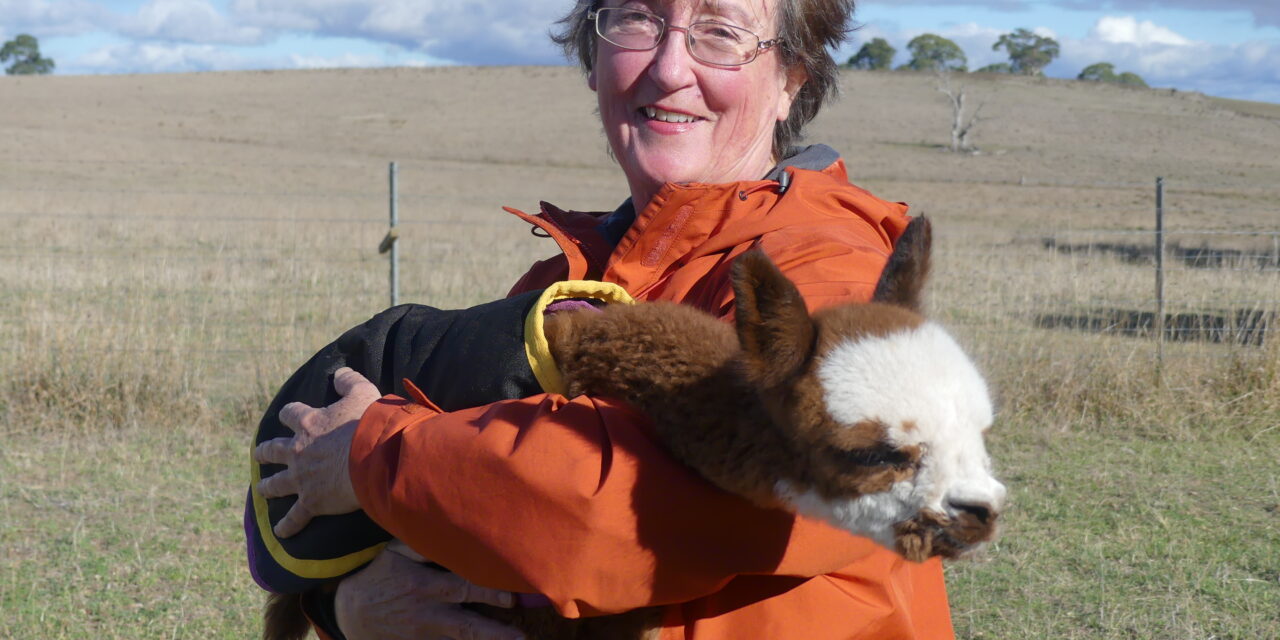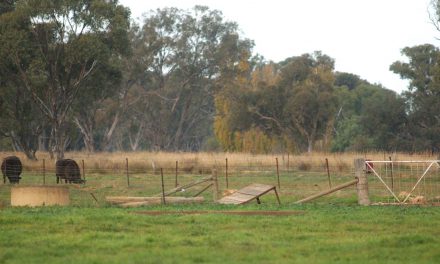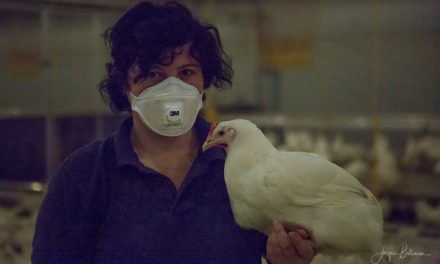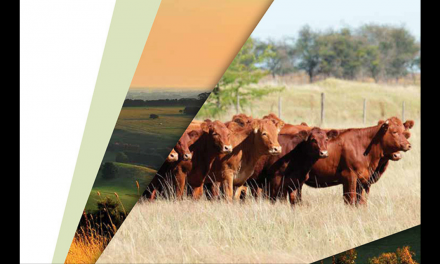It was love at first sight in the 1990s. Now the love affair with these curious creatures has spanned generations.
Forget cake, Marie Antoinette is perfectly content grazing pasture.
She’s a queen among the herd of 150 alpacas at Forestglen Alpaca Stud on the picturesque plains of Millthorpe in central western NSW.
Nearby is Goodness Gracious, a newborn named for the surprising splashes of chocolate brown and white on her fleece.
Remy roams with Rock ’n’ Roll, Momo and Antarctica, while Talk To Me has just given birth to a snowy white girl called Rumour Has It.
The curious creatures appear to kiss their young and affectionately nuzzle each other on their long necks while quietly feeding in the afternoon sun.
The stud, managed by Jennie Carey and her daughter Alexandra Staples, was established in the early 1990s, soon after Australia’s first flocks of alpacas were imported from South America.
Jennie’s mother Maureen began alpaca showing and breeding after spotting the exotic animals at a field day.
She was besotted with their “big, beautiful eyes” and adorable babies, Jennie said.
“It was love at first sight and the love affair has never really finished,” she said.
The Australian Alpaca Association, which represents more than 1000 breeders, is hoping the nation’s consumers will be wooed by the woolly animals too.
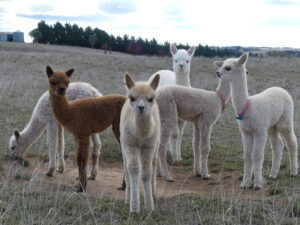
Alpacas at the Forestglen Alpaca Stud, Millthorpe, central west NSW, Thursday, May 1, 2025. (AAP Image/Stephanie Gardiner) NO ARCHIVING
The industry celebrated its 35th year with National Alpaca Week in May, complete with a campaign encouraging people to buy products made from the unique fleece.
The association’s president Brett Fallon, who operates a stud in Albany, Western Australia, said alpaca fibre had many appealing qualities.
“It’s very warm … it has a silky feel to it and a natural lustre that is hard to replicate,” Mr Fallon said.
Australia’s alpaca industry was identified by research and development body AgriFutures as an emerging market in 2023.
With demand for quality and luxurious fibres here and overseas, the industry has enormous potential to grow, its report said.
The association is working to educate and support small-scale farmers to harvest fleece in a bid to bolster the market. It was love at first sight in the 1990s. Now the love affair with these curious creatures has spanned generations.
Forget cake, Marie Antoinette is perfectly content grazing pasture.
She’s a queen among the herd of 150 alpacas at Forestglen Alpaca Stud on the picturesque plains of Millthorpe in central western NSW.
Nearby is Goodness Gracious, a newborn named for the surprising splashes of chocolate brown and white on her fleece.
Remy roams with Rock ’n’ Roll, Momo and Antarctica, while Talk To Me has just given birth to a snowy white girl called Rumour Has It.
The curious creatures appear to kiss their young and affectionately nuzzle each other on their long necks while quietly feeding in the afternoon sun.
The stud, managed by Jennie Carey and her daughter Alexandra Staples, was established in the early 1990s, soon after Australia’s first flocks of alpacas were imported from South America.
Jennie’s mother Maureen began alpaca showing and breeding after spotting the exotic animals at a field day.
She was besotted with their “big, beautiful eyes” and adorable babies, Jennie said.
“It was love at first sight and the love affair has never really finished,” she said.
The Australian Alpaca Association, which represents more than 1000 breeders, is hoping the nation’s consumers will be wooed by the woolly animals too.
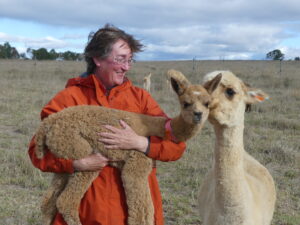
Jennie finds the alpacas, including Goodness Gracious and Momo, to be “great big puffballs”.
The industry celebrated its 35th year with National Alpaca Week in May, complete with a campaign encouraging people to buy products made from the unique fleece.
The association’s president Brett Fallon, who operates a stud in Albany, Western Australia, said alpaca fibre had many appealing qualities.
“It’s very warm … it has a silky feel to it and a natural lustre that is hard to replicate,” Mr Fallon said.
Australia’s alpaca industry was identified by research and development body AgriFutures as an emerging market in 2023.
With demand for quality and luxurious fibres here and overseas, the industry has enormous potential to grow, its report said.
The association is working to educate and support small-scale farmers to harvest fleece in a bid to bolster the market.

